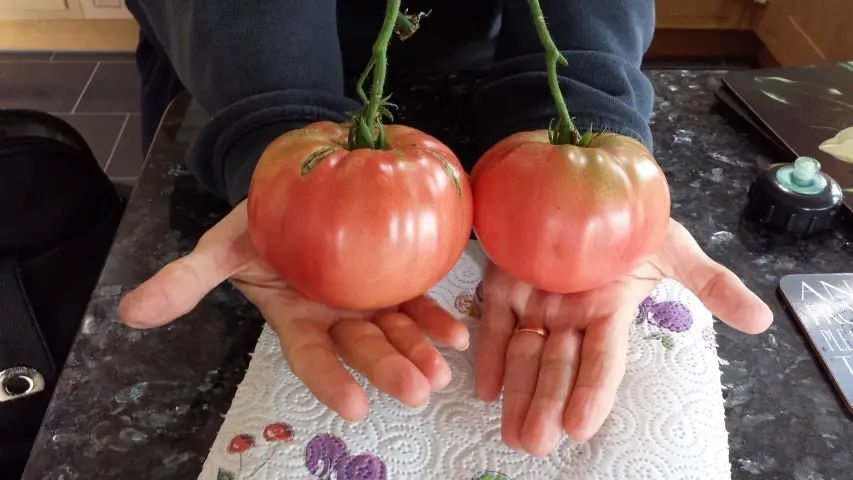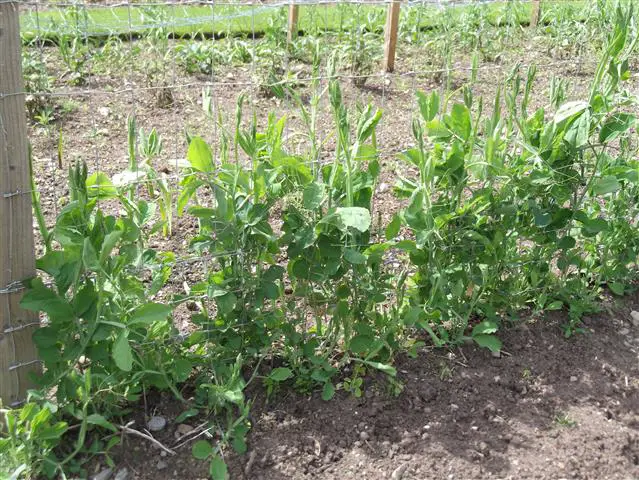If you’re a beginner to growing your own vegetables, then you may be encouraged to know that you are not alone!
In recent times thanks to the whole coronavirus outbreak or covid-19 pandemic if you will, there is a mad rush on to know more about growing your own vegetables to help feed the family.
This is an obvious first step to self-sufficiency brought into the limelight by the scary possibility that the ‘excrement will hit the reciprocator’ in the coming months or years if food supplies in the stores become restricted.
End days scare mongering? Possibly just a little – but you never know…
Either way, growing your own vegetables is not only one of the most satisfying things you can do – it also reaps great rewards in food, physical health and mental health.
Consider growing your own as a kind of therapy! It’s good for the soul and the body all at once.
So if you are a beginner to growing veggies, then let me just say welcome aboard! Growing your own food is not rocket science, and it need not be difficult, and you definitely do not need ‘green fingers’ in order to be a successful vegetable gardener.

So with all that in mind, here are my top ten tips for any newbie vegetable gardener.
- Don’t be overly ambitious! Whilst its great to be enthusiastic about your new venture, the last thing you want to do is line yourself up for failure. By growing plants that are not suitable to your area, or simply need a little more expertise than you may have at present, you will in effect become the ‘architect of your own destruction’ and for that matter – your plants! Try and keep it simple and choose plants that are easy to grow for the first year at least. Check out the list of easy plants to grow later on this page.
- See what your neighbours are growing: A sure way to find out what grows well in your area is to look at what other gardeners around you are growing. Do not be afraid to ask a few questions. You will find that most gardeners love to ‘chew the fat’ over the fence and will be happy to share a few tips with you. This is unless they are prize-growing veggie growers who keep their secrets close to their chest!
- Build a few raised beds: Raised garden beds are much easier to operate than traditional row gardening methods. Yes, they will take a bit of effort in the beginning to build and fill the beds. Once this is done however you will find that they are more productive and easier to maintain, with no heavy digging equipment needed. There are indeed a few easy methods for growing vegetables in the following page no-dig gardening methods for beginners.
- Make best use of what you have around you: Old pots and containers can be used to grow numerous veggies. Fallen branches or forest debris can be used to fill raised beds or even build a Hugelkultur. All organic material can be used to make your own compost. Sand and gravel can be used at the bottom of pots and containers for drainage, whilst poor quality soil can be improved by adding organic material and mulching.
- Make sure of a good water supply: Many a gardener has become unstuck by not anticipating the need for water at the height of the season. Vegetables in particular need lots of water over the summer growing season to fill out and ripen. Make sure you have a water supply nearby, and collect as much rainwater as you can with water barrels at the end of roof downpipes. A natural water supply has the advantage of minerals and all sorts of good stuff your plants will love.
- Only grow what you will eat: Many newbie gardeners get caught up in the hype of growing (or trying to grow) vegetables that they don’t like, just for the experience of growing them. Whilst it is good to have a challenge at times, you really do not want to get to a point where you have had a very successful crop of vegetables – just to dig up and throw in the compost heap! So do yourself a favour and think about what you like to eat, then decide if it’s possible to grow them in your area or zone. The exception to this rule could be that you are planning a trade with another gardener – that’s all good and acceptable practice!
- Don’t plant too early: This is a common mistake for the newbie gardener, and its understandable. When you stroll through the garden centres at the very beginning of the season you may well be tempted by the many plants on offer, and rush to put them into your garden! However the fact is that these plants have been forced-on in heated greenhouses and perfect conditions. Unless you are able to put them into the same ideal conditions you will just end up with a whole load off dead plants – be patient! Your time will come, usually a few weeks after you see them on sale and the weather has warmed slightly.
- Plant seedlings not seeds: You may think this advice a bit odd as it seems natural to plant seeds first? Indeed for the experienced gardener seeds this is usually the way to go. However for the beginner, growing from seed can be a bit of a challenge with regard to seed propagators, potting compost, thinning seedlings and so on. Planting seedlings that are already established just cuts out all the hassle at the beginning, and saves you a heap of time in money and materials. Exceptions to this rule would be carrots, parsnips (neither transplants well), swedes, potatoes, herbs, and other vegetables where the seeds can be sown direct into the ground.
- Plan well ahead: The time for gardening begins the previous winter! The long winter months are an ideal time to be considering your gardening plans come springtime. All gardening is season-related or constrained, and all plants take their own time to come to maturity. This can be anything from a few weeks like radish or chives, or a few months in the case of cabbage or potatoes. This means that you must have a plan in place as to where and when you will plant a particular vegetable – and what you will grow after that one is done and eaten.
- Enjoy yourself! Growing your own vegetables is all about the satisfaction of reaping the rewards of your labours. It should not be a chore or drudgery – even though at times you wish you could spend more time in front of the telly! By following the tips above you should find that you are not wasting your efforts, and growing the vegetables you will eat with the minimal of hassle or indeed experience required.
Easy vegetables to grow for the beginner gardener would include the following.
Potatoes, onions, shallots, chives, garlic, leeks – all these vegetables grow easily and with little trouble in the way of insects or disease. ( the exception would be potato blight in some cases).
Carrots, parsnips, beets, are also good to grow but can be troubled with the carrot fly (more here).
Cabbages, cauliflower, broccoli are all part of the brassica family and easy to grow – but watch out for the cabbage butterfly which can be a real pest.
Legumes such as sugar snap peas and runner beans can be grown up a trellis or framework to make an excellent backdrop.
such as sugar snap peas and runner beans can be grown up a trellis or framework to make an excellent backdrop.
Peppers both sweet and hot peppers are a great choice for container gardening as they are super-productive and easy to grow.
Tomato plants are in a league of their own in many respects and an absolute must for any gardener to try for themselves. I love beefsteak tomatoes in particular for their flavour and meatiness – read my article on growing beefsteak tomatoes for more info on these amazing tomatoes. A little more difficult to grow for the newbie but not much if you follow the instructions!
Summary:
Well that’s it for the top ten tips for growing vegetables if you are a newbie or beginner gardener. The main thing is just chill – knowledge is gained from mistakes and so if you fail on something or your plants just wither and die – find out why and do not repeat the same mistake!
Growing vegetables – How hard can it be!?


